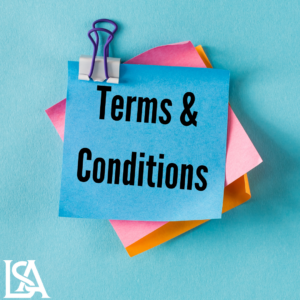Terms and Conditions for Your Child’s Inheritance
You’re probably aware of the most straightforward way to leave a child an inheritance—a single lump sum. However, did you know that estate planning lets you limit how your child receives their inheritance? While there are some legal limits on conditional gifting, estate planning gives you the flexibility to design your child’s inheritance according to your preferences; let’s discuss this further:

Conditional Gifts
There are two main types of conditional gifts:
- A condition precedent gift requires meeting a specific condition before receiving the inheritance. For example, a parent leaves a trust fund for their child, but the child can only access it after earning a college degree.
- A condition subsequent gift allows for taking away the inheritance if a specific condition occurs. For example, if the beneficiary uses illegal drugs, they forfeit the property.
Not All Conditions Will Hold Up in Court
Parents can be particular when setting up conditional gifts. However, courts won’t enforce conditions that are illegal, uncertain, unreasonable, impossible, or contrary to public policy. Here are some guidelines:
- Parents cannot ask their children to engage in unlawful activity.
- Parents must clearly specify the conditional gift in writing.
- The beneficiary must have a real chance to meet the condition.
Conditions going against public policy aren’t automatically illegal, but are usually deemed unfair by the court. For example, courts often reject conditions restricting someone’s right to marry or encouraging divorce.
How courts interpret a conditional gift based on public policy can be tricky and depends on the details of each case. It often relies on past decisions and the judge’s judgment. For instance, some courts have rejected conditions requiring a beneficiary to get divorced but have upheld conditions related to marrying within the same religion. Public policy also varies by state, so a conditional gift that’s invalid in one state might be valid in another.
Ask Our Expert Estate Planning Attorneys
The sensitive and often complicated issues of enforcing terms and conditions into your child’s inheritance involve both family dynamics and state laws. For this reason, it’s best to have all parties involved meet with an estate planning attorney who can better help clarify what setting or receiving conditional gifts looks like. Here at Law Stein Anderson, we can guide you through the process—contact us today for a free consultation.
